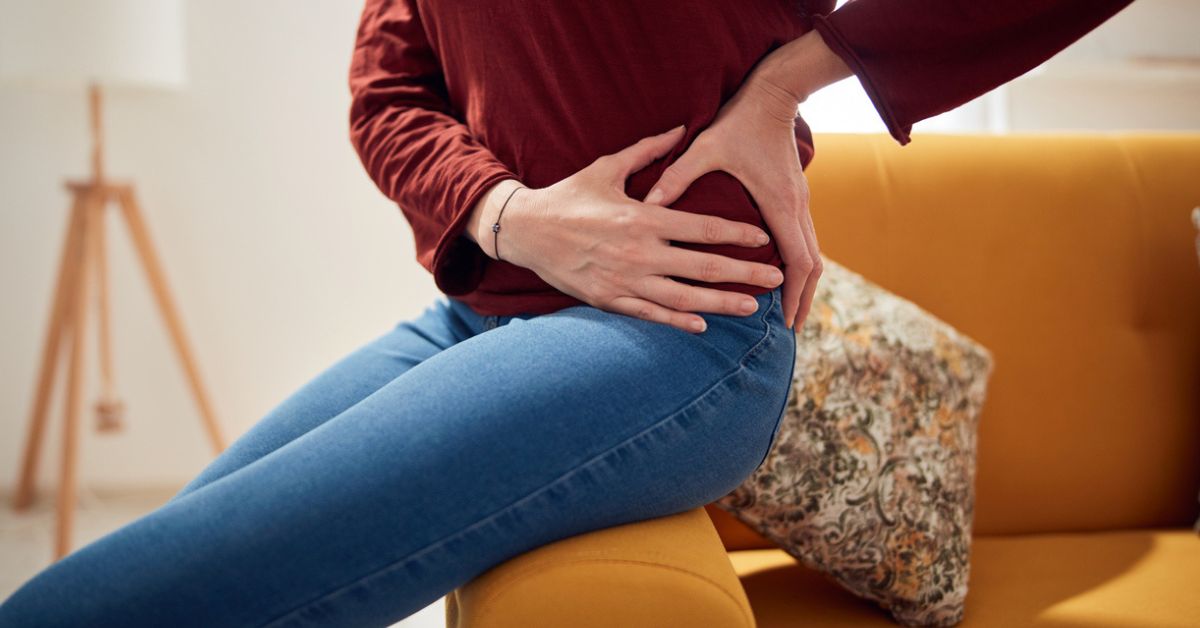Understanding the Connection
Hip pain is common among older adults, with around 50% reporting experiencing hip or knee pain. A cross-sectional study of 6,596 U.S. adults older than 60 years found that 14.3 percent experienced hip pain. This prevalence is mainly due to natural wear and tear from aging, repetitive movements, and sometimes trauma.
The most common cause of chronic hip pain is arthritis, specifically osteoarthritis. Osteoarthritis affects approximately 25% of the population and is a degenerative joint disease where the cartilage gradually wears away. This is significant because the hip is a weight-bearing joint that supports much of our body weight and is subjected to substantial stress over time.
The Impact of Hip Pain
Chronic hip and knee pain can have far-reaching implications on your general health status. As we age, our bodies naturally undergo changes; unfortunately, these changes sometimes lead to discomfort and pain. Among the most prevalent of these is chronic hip and knee pain, which can significantly deter your quality of life.
This pain doesn’t just cause discomfort; it can limit your mobility, making routine tasks—activities you’ve likely taken for granted—increasingly challenging. Imagine a day when walking your dog, climbing the stairs to your bedroom, or even standing to cook your favorite meal becomes an ordeal. This is the reality for many individuals suffering from chronic hip and knee pain.
But the effects don’t stop there. Chronic pain can also interfere with your sleep patterns. We all understand the importance of a good night’s sleep, which is a fundamental pillar of overall well-being. Yet, chronic pain can rob you of this essential rest, leading to fatigue, mood changes, and a decreased ability to handle stress and function at your best.
The impact of chronic hip and knee pain extends beyond physical symptoms; it can influence your mental health, social interactions, and overall enjoyment of life. But here’s the good news: you’re not alone; more importantly, solutions are available.
Addressing Hip Pain
Overcoming hip pain involves a multifaceted approach, including pain management techniques and preventative measures.
Pain Management Techniques
Depending on the severity of the pain, over-the-counter pain relievers or prescription medications may be recommended to manage the symptoms. Physical therapy can also be beneficial, as it helps strengthen the muscles around the hip and improve flexibility.
However, these are often temporary solutions and do not address the root cause of the pain. Regenerative treatments may be a viable option for more long-term relief and healing. These innovative treatments aim to stimulate the body’s natural healing response and can help restore function and reduce pain.
Preventative Measures
Prevention strategies include maintaining a healthy weight to reduce joint stress, regular exercise to strengthen the muscles supporting the joints, and practicing good posture to distribute weight evenly.
Regenerative Institute of Newport Beach is a Call Away
Hip pain is a common issue that many older adults face as they age. However, understanding the causes and knowing how to manage and prevent it can make a significant difference in maintaining mobility and quality of life. If you’re experiencing hip pain and looking for effective, innovative treatments, Regenerative Institute of Newport Beach may be able to help. Our team is committed to guiding you toward improved health and well-being.
Remember, you don’t have to live with hip pain. Some options can help you regain your mobility and reclaim your life. Contact Regenerative Institute of Newport Beach online or by phone to learn more about how we can assist you. (949) 301-8683


